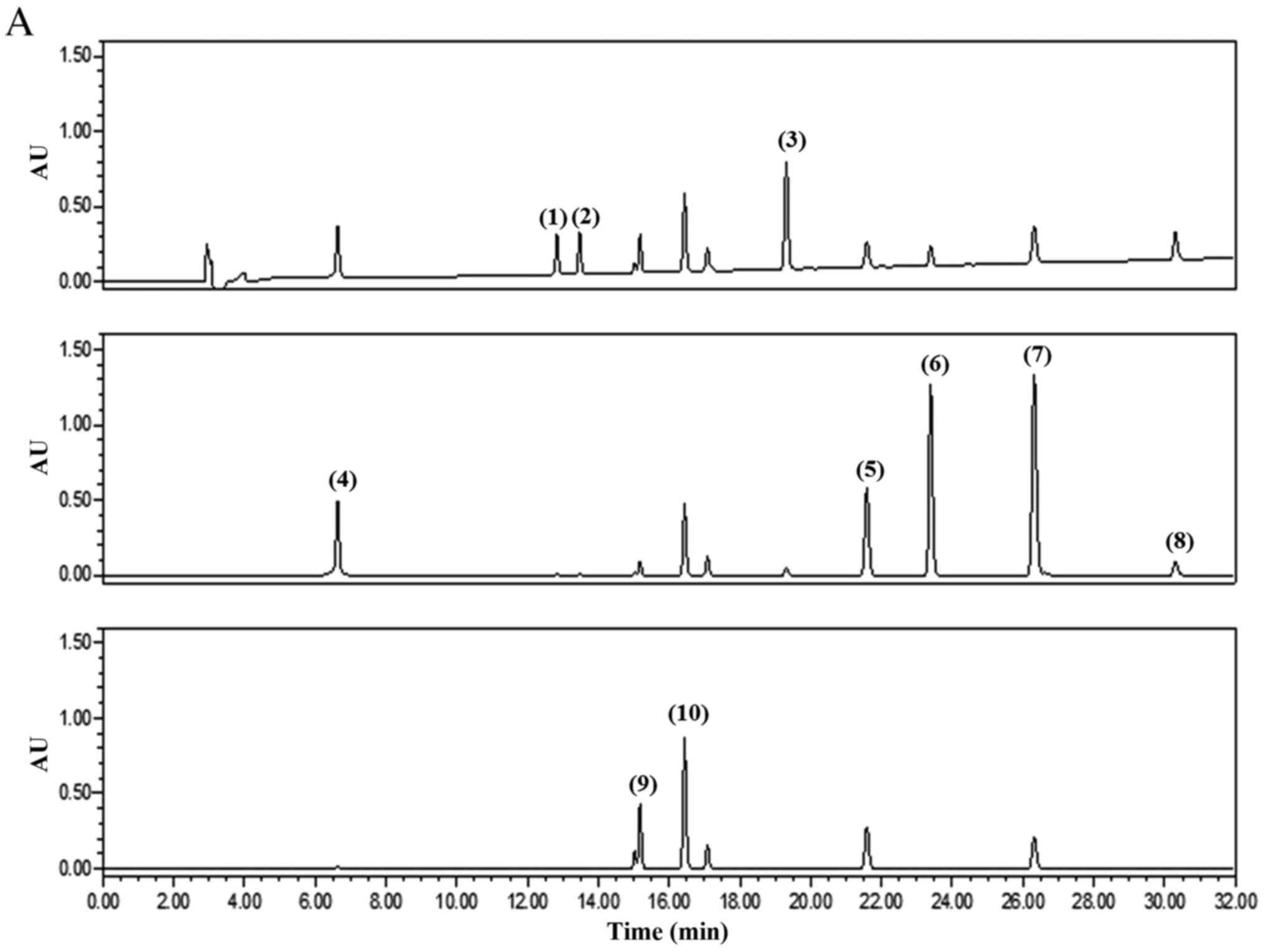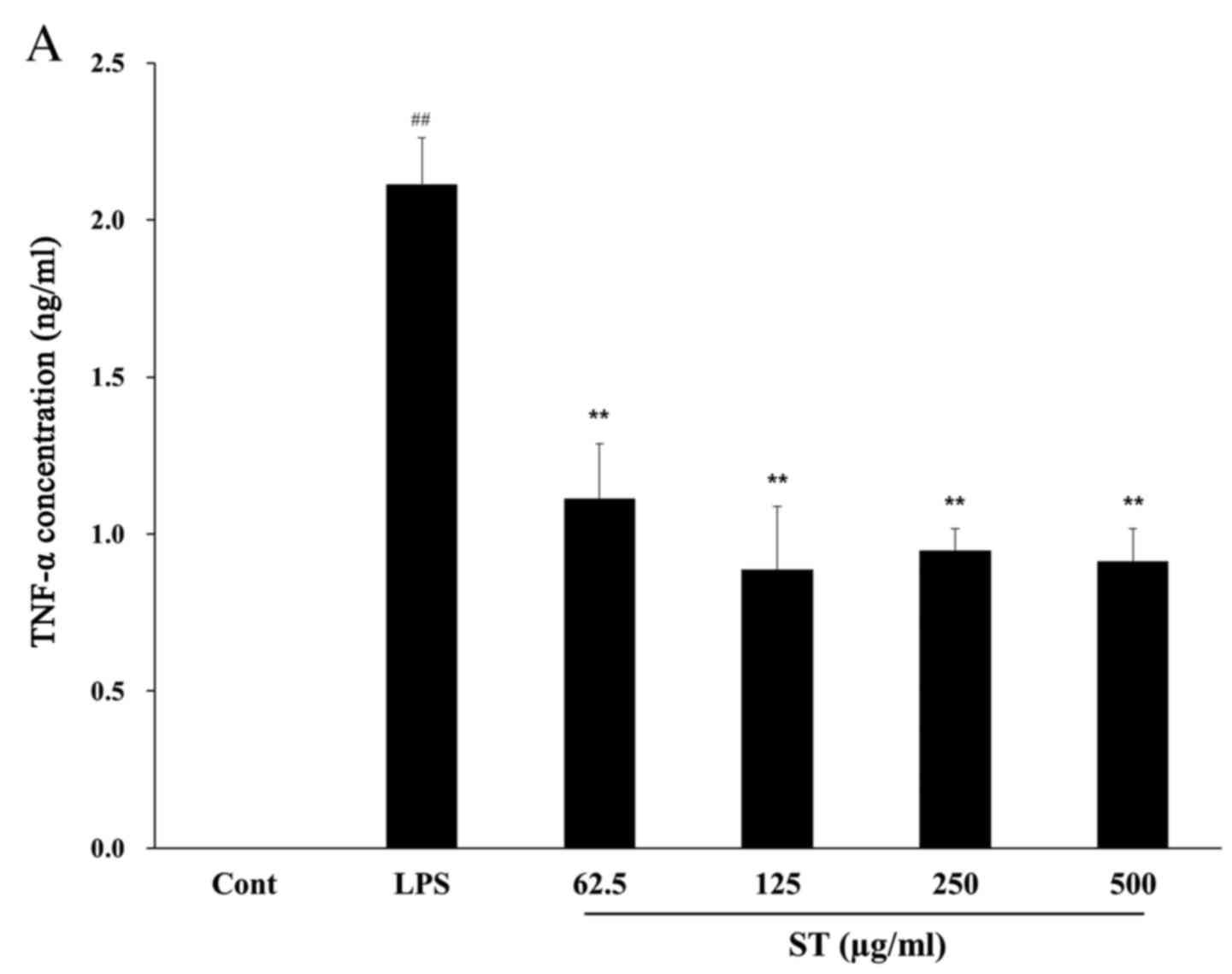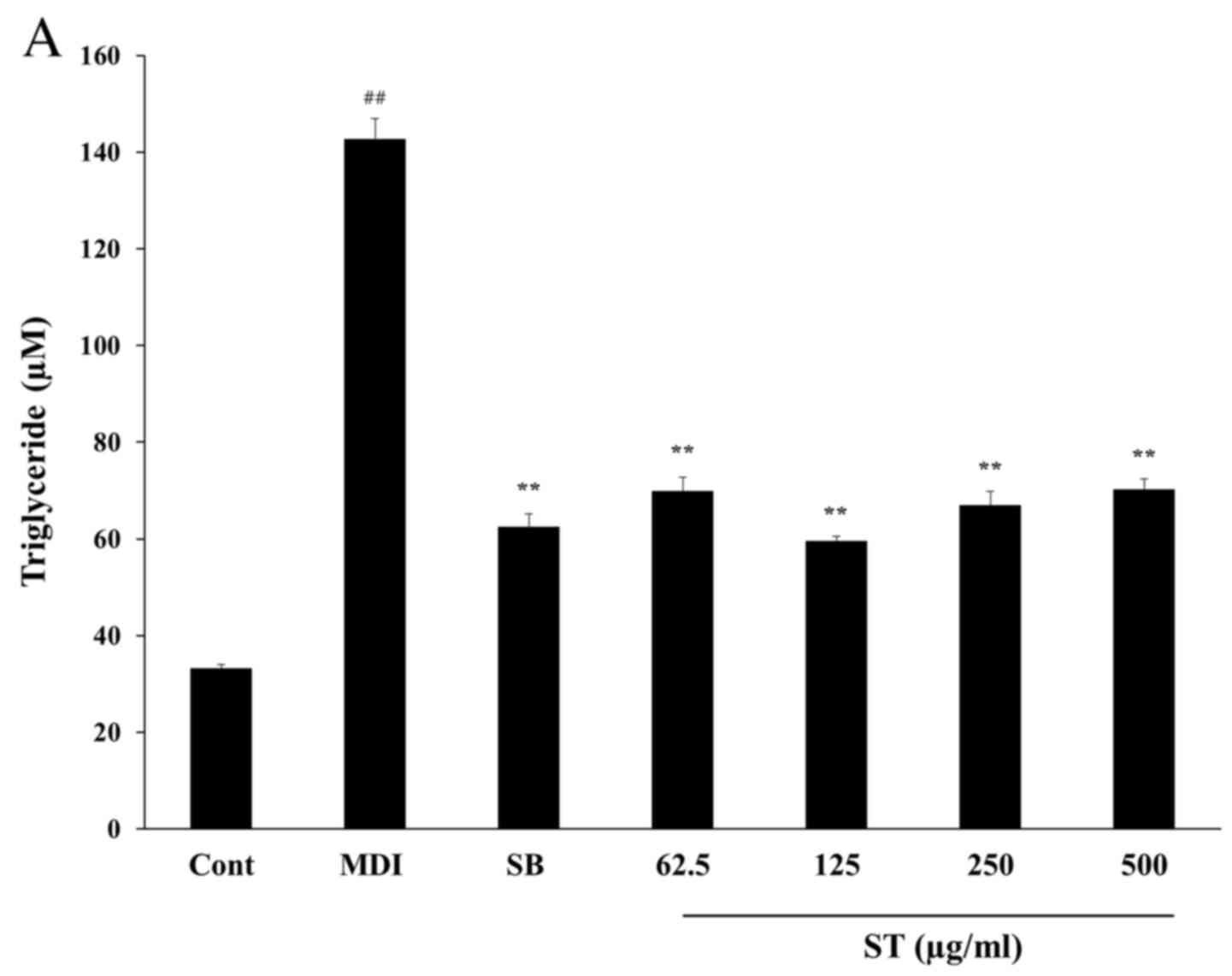|
1
|
Liu Y, Yin HJ, Shi DZ and Chen KJ: Chinese
herb and formulas for promoting blood circulation and removing
blood stasis and antiplatelet therapies. Evid Based Complement
Alternat Med. 2012:1845032012.PubMed/NCBI
|
|
2
|
Jeon BH, Woo WH and Jeong WY: The review
of blood stasis concept in oriental medicine. Korean J Oriental
Pathology. 4:93–102. 1989.
|
|
3
|
Wang T, Jia C, Chen Y, Li X and Cheng J:
Analysis on establishment and affecting factors of qi stagnation
and blood stasis rat model. Zhongguo Zhong Yao Za Zhi.
37:1629–1633. 2012.(In Chinese). PubMed/NCBI
|
|
4
|
Lee TC, Lo LC and Wu FC: Traditional
Chinese medicine for metabolic syndrome via TCM pattern
differentiation: Tongue diagnosis for predictor. Evid Based
Complement Alternat Med. 2016:19712952016.PubMed/NCBI
|
|
5
|
Liu X, Guo C, Ma X, Tian R, Zhang Y and
Yin H: Relationship between serum estrogen levels and blood stasis
syndrome in postmenopausal women with coronary heart disease. Pak J
Med Sci. 31:25–30. 2015.PubMed/NCBI
|
|
6
|
Navarro JF and Mora C: Role of
inflammation in diabetic complications. Nephrology Dialysis
Transplantation. 20:2601–2604. 2005. View Article : Google Scholar
|
|
7
|
Jeffcoate WJ, Game F and Cavanagh PR: The
role of proinflammatory cytokines in the cause of neuropathic
osteoarthropathy (acute Charcot foot) in diabetes. Lancet.
366:2058–2061. 2005. View Article : Google Scholar : PubMed/NCBI
|
|
8
|
Gunter RN: Blood Stasis: China's classical
concept in modern medicine. Elsvier; China: 2006
|
|
9
|
Zhuo QH, Jiang XF and Zhang YM: Clinical
observation of Shaofu zhuyu decoction treating for dysmenorrhea
with adolescent functional of 126 cases. Clinical Journal of
Experiment Traditional Medicine Formulae. 8:58–59. 2008.
|
|
10
|
Yang SJ and Jin CS: A study on the effects
of sobokchukeo-tang on the isolated uterine muscle of rats. J
Orient Obestet Gynecol. 18:72–84. 2005.
|
|
11
|
Shin WW, Choi JS, Khil JH and Kim SH:
Study on antitumor activity of sobokchukeotang and
kamisocokchukeotang. J Korean Orient Med. 22:22–30. 2001.
|
|
12
|
Yun YH, Lee DN, Seo IB and Kim HJ: Effects
of sobokchukeo-tang on the development of experimentally induced
endometriosis in rats. J Orient Obestet Gynecol. 19:141–161.
2006.
|
|
13
|
Cheng YX, Zhou LL, Yan YM, Chen KX and Hou
FF: Diabetic nephropathy-related active cyclic peptides from the
roots of Brachystemma calycinum. Bioorg Med Chem Lett.
21:7434–7439. 2011. View Article : Google Scholar : PubMed/NCBI
|
|
14
|
Kern PA, Ranganathan S, Li C, Wood L and
Ranganathan G: Adipose tissue tumor necrosis factor and
interleukin-6 expression in human obesity and insulin resistance.
Am J Physiol Endocrinol Metab. 280:E745–E751. 2001.PubMed/NCBI
|
|
15
|
Maachi M, Pieroni L, Bruckert E, Jardel C,
Fellahi S, Hainque B, Capeau J and Bastard JP: Systemic low-grade
inflammation is related to both circulating and adipose tissue
TNFalpha, leptin and IL-6 levels in obese women. Int J Obes Relat
Metab Disord. 28:993–997. 2004. View Article : Google Scholar : PubMed/NCBI
|
|
16
|
Skurk T, Alberti-Huber C, Herder C and
Hauner H: Relationship between adipocyte size and adipokine
expression and secretion. J Clin Endocrinol Metab. 92:1023–1033.
2007. View Article : Google Scholar : PubMed/NCBI
|
|
17
|
Yaw HP, Ton SH, Chin HF, Karim MK,
Fernando HA and Kadir KA: Modulation of lipid metabolism in
glycyrrhizic acid-treated rats fed on a high-calorie diet and
exposed to short or long-term stress. Int J Physiol Pathophysiol
Pharmacol. 7:61–75. 2015.PubMed/NCBI
|
|
18
|
Kota B, Huang TH and Roufogalis BD: An
overview on biological mechanisms of PPARs. Pharmacol Res.
51:85–94. 2005. View Article : Google Scholar : PubMed/NCBI
|
|
19
|
He Q, Huang C, Zhao L, Feng J, Shi Q, Wang
D and Wang S: α-Naphthoflavone inhibits 3T3-L1 pre-adipocytes
differentiation via modulating p38MAPK signaling. Int J Clin Exp
Pathol. 6:168–178. 2013.PubMed/NCBI
|
|
20
|
Park B, You S, Jung J, Lee JA, Yun KJ and
Lee MS: Korean studies on blood stasis: An overview. Evid Based
Complement Alternat Med. 3:20152015.
|
|
21
|
Gokulakrishnan K, Amutha A, Ranjani H,
Bibin SY, Balakumar M, Pandey GK, Anjana RM, Ali MK, Narayan KM and
Mohan V: Relationship of adipokines and proinflammatory cytokines
among asian indian with obesity and youth onset type 2 diabetes.
Endocr Pract. 21:1143–1151. 2015. View Article : Google Scholar : PubMed/NCBI
|
|
22
|
Chang CJ, Jian DY, Lin MW, Zhao JZ, Ho LT
and Juan CC: Evidence in Obese Children: Contribution of
hyperlipidemia, obesity-inflammation and insulin sensitivity. PLoS
One. 10:e01259352015. View Article : Google Scholar : PubMed/NCBI
|
|
23
|
Akram Z, Abduljabbar T, Abu Hassan MI,
Javed F and Vohra F: Cytokine profile in chronic periodontitis
patients with and without obesity: A systematic review and
meta-analysis. Dis Markers. 2016:48014182016.PubMed/NCBI
|
|
24
|
Basinska K, Marycz K, Śieszek A and Nicpoń
J: The production and distribution of IL-6 and TNF-a in
subcutaneous adipose tissue and their correlation with serum
concentrations in Welsh ponies with equine metabolic syndrome. J
Vet Sci. 16:113–120. 2015. View Article : Google Scholar : PubMed/NCBI
|
|
25
|
Eichelmann F, Schwingshackl L, Fedirko V
and Aleksandrova K: Effect of plant-based diets on obesity-related
inflammatory profiles: A systematic review and meta-analysis of
intervention trials. Obes Rev. 17:1067–1079. 2016. View Article : Google Scholar : PubMed/NCBI
|
|
26
|
Hotamisligil GS, Arner P, Caro JF,
Atkinson RL and Spiegelman BM: Increased adipose tissue expression
of tumor necrosis factor-alpha in human obesity and insulin
resistance. J Clin Invest. 95:2409–2415. 1995. View Article : Google Scholar : PubMed/NCBI
|
|
27
|
Winkler G, Kiss S, Keszthelyi L, Sápi Z,
Ory I, Salamon F, Kovács M, Vargha P, Szekeres O, Speer G, et al:
Expression of tumor necrosis factor (TNF)-alpha protein in the
subcutaneous and visceral adipose tissue in correlation with
adipocyte cell volume, serum TNF-alpha, soluble serum
TNF-receptor-2 concentrations and C-peptide level. Eur J
Endocrinol. 149:129–135. 2003. View Article : Google Scholar : PubMed/NCBI
|
|
28
|
Goossens GH and Blaak EE: Adipose tissue
dysfunction and impaired metabolic health in human obesity: A
matter of oxygen? Front Endocrinol (Lausanne). 6:552015.PubMed/NCBI
|
|
29
|
Friedman JM and Halaas JL: Leptin and the
regulation of body weight in mammals. Nature. 395:763–770. 1998.
View Article : Google Scholar : PubMed/NCBI
|
|
30
|
Pósa A, Szabó R, Kupai K, Csonka A, Szalai
Z, Veszelka M, Török S, Daruka L and Varga C: Exercise training and
calorie restriction influence the metabolic parameters in
ovariectomized female rats. Oxid Med Cell Longev.
2015:7870632015.PubMed/NCBI
|
|
31
|
Takenouchi T, Takayama Y and Takezawa T:
Co-treatment with dexamethasone and octanoate induces adipogenesis
in 3T3-L1 cells. Cell Biol Int. 28:209–216. 2004. View Article : Google Scholar : PubMed/NCBI
|
|
32
|
Engelman JA, Lisanti MP and Scherer PE:
Specific inhibitors of p38 mitogen-activated protein kinase block
3T3-L1 adipogenesis. J Biol Chem. 273:32111–32120. 1988.
|



















